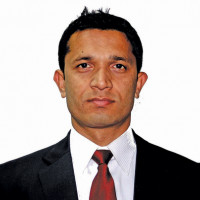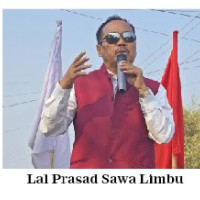- Friday, 27 February 2026
How to distribute mountaineering, telecom revenues? not legal’
Kathmandu, July 30: The Office of the Auditor General (OAG) has asked the government to clear the confusion regarding the distribution of the revenue generated from mountaineering and telecommunication.
Nepal Mountaineering Association (NMA) is collecting the royalty from 27 snowcapped peaks measuring above 6,000 metres and distributing the revenue to various levels of the government.
In FY 2019/20, the NMA deposited 55 per cent of the collected royalty to the federal consolidated fund and kept the remaining 45 per cent to itself while in 2020/21, it deposited 50 per cent to the federal fund, provided 5 per cent of the collected fund to Mountaineering Training Development Committee and kept 45 per cent to itself.
But it did not obtain any approval from the government regarding the change in the royalty distribution. “The act to provide the right to raise the royalty from the national natural resource to the NMA and distributing the collected royalty between the government and the association is not as per the legal provision,” the OAG mentioned in its 59th Annual Report for the Fiscal Year 2021/22 published about a couple of weeks ago.
It clearly stated that all collected royalties should be deposited to the federal divisible fund, and the federal government should distribute it as per the National Natural Resources and Fiscal Commission (NNRFC).
According to the Schedule-4 of the Intergovernmental Fiscal Arrangement Act, 2017, the royalty collected from mountaineering, electricity, forest, mines and minerals, and water and other natural resources should be distributed 50 per cent to the federal government and 25 per cent each to the concerned province and the local level.
The act has noted that the government, on the recommendation of the NNRFC, shall allocate and distribute royalties of natural resources in a proportionate ratio to the province and local level as affected by the use of natural resources – concerned local level and district coordination commit
tee. Likewise, the federal government has the responsibility to review the allocation of royalties of the natural resources in every five-year. Such changes, if made, should be published in the Nepal Gazette.
Similarly, the OAG report informed that there is a confusion whether the royalty collected from the telecommunication sector is subjected to the distribution among the various levels of the government as per the Intergovernmental Fiscal Arrangement Act, 2017.
According to the Telecommunication Act, 1996, the telecommunication ser
vice provider should pay 4 per cent of their total income to the government in royalties. In FY 2020/21, the Nepal Telecommunication Authority submitted Rs. 3.57 billion to the government’s consolidated fund.
The government should make it clear if the royalty falls under the ‘other royalties’ as mentioned in the Intergovernmental Fiscal Arrangement Act, read the report.
The national auditing body also suggested the federal government to reform the system to record and report the royalty, and distribute it as per the NNRFC’s recommendations.
To take an example, of the Rs. 5.43 billion royalty collected in the federal divisible fund, the federal government kept Rs. 2.99 billion (about 55.19 per cent) and distributed Rs. 1.216 billion (about 22.4 per cent) each to the provincial and local government.
Similarly, in FY 2019/20, the provinces and local bodies got 25 per cent revenue share only from the forests, and 24.69 per cent from electricity while only 9.41 per cent revenue each was given to the subnational governments.
The report has also noted that some of the local bodies had allocated more than the required budget for the administrative spending, and suggested that the concerned province and local body should manage the administrative cost from their internal income, and use the federal grants in such titles, if required, economically.







-square-thumb.jpg)


-original-thumb.jpg)





